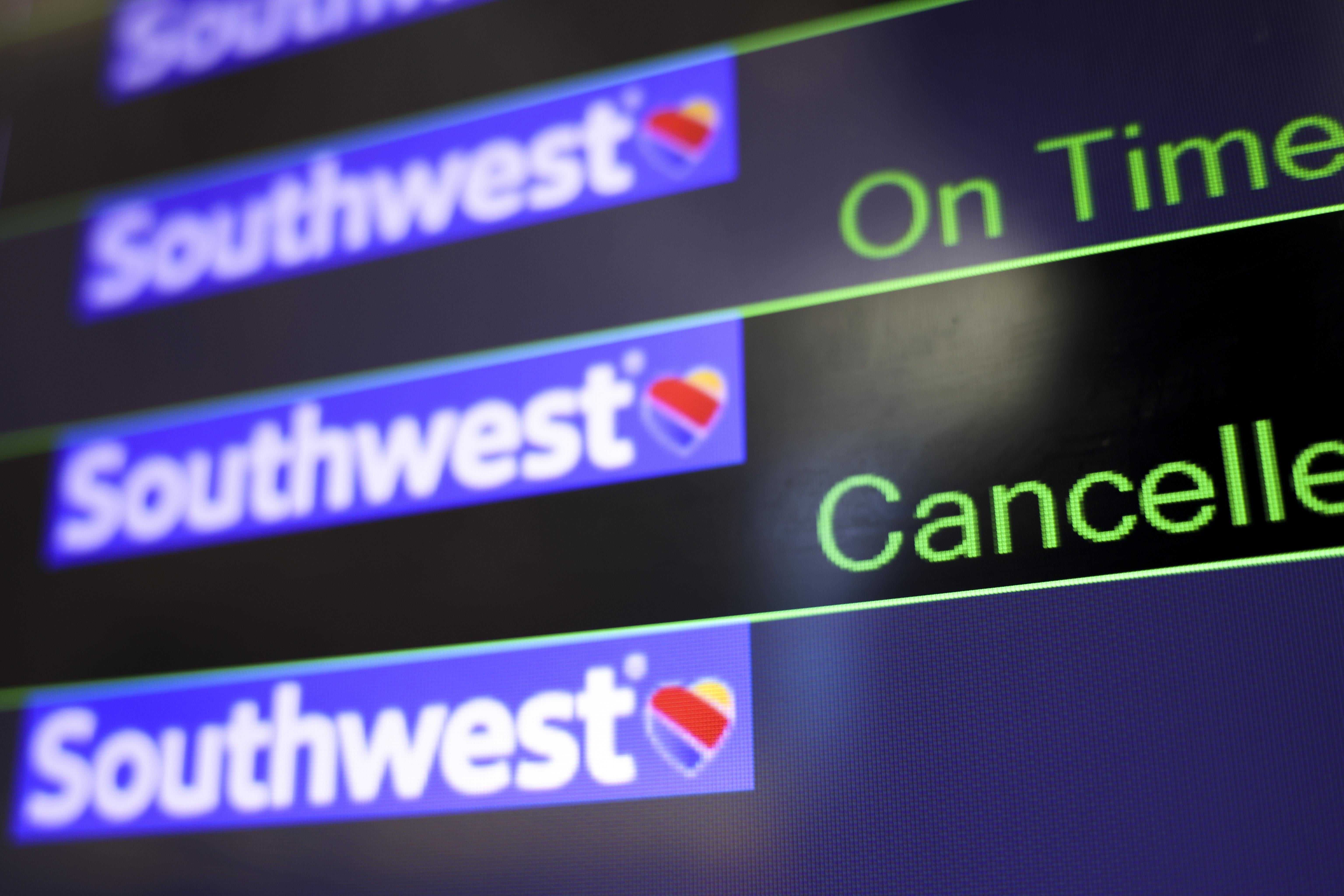Southwest Airlines has canceled more than 2,000 flights since Friday, amounting to about a third of its schedule over the long weekend. The disruptions left tens of thousands of passengers stranded, and the carrier’s operations are still playing catch-up. On top of the usual consumer agony and social media meltdowns that this has inspired, there’s a bizarre twist: Southwest’s predicament has become a talking point for conservative commentators and politicians in their campaign against vaccine mandates. That would be wild if there was some truth to a mandate causing these problems (spoiler: it didn’t), but what’s actually going on might be even more enervating. Fasten your own seatbelt before fastening any others’, and I’ll explain what’s going on.
What’s the cause of these flight cancellations?
According to Southwest, weather and air traffic control snafus began grounding a number of flights on Friday. (The Federal Aviation Administration confirmed that a staffing shortfall at an air traffic control center, weather, and military training exercises did cause cancellations and delays, but only for a few hours.) That initial wave of cancellations, Southwest said, discombobulated their whole system by preventing aircrafts and crews from being in the right places at the right times according to schedule. There was then a cascading effect in which other flights also had to be canceled because of these labor and airplane issues piling up. Southwest is also still trying to ramp up operations again after it made cutbacks during the height of the pandemic, which also affected its ability to absorb the initial shock of nixed flights.
Woof. Is this happening to other airlines?
This appears not to be an aviation problem so much as a Southwest problem; other airlines were able to carry on with minimal cancellations after Friday’s disruptions. Southwest has generally struggled with coordinating its operations as of late; it had the highest percentage of cancellations and worst on-time performance among the country’s four major airlines in June and July. The Southwest pilots union further blamed the company’s technical systems and processes for reassigning pilots when disruptions occur, claiming that these are long-standing problems that executives have failed to fix for years. The airline has struggled with rerouting pilots partly because it uses a “point-to-point” system, which focuses on flying passengers directly to their destinations. This is opposed to the “hub-and-spoke” model that American Airlines uses, in which passengers are often first routed to a main base of operations before departing for their final destination. While the point-to-point system has the advantage of reducing travel times and the number of connecting flights, it can be difficult to adapt to unexpected situations. Southwest’s point-to-point network also covers an unusually large geographic area, which makes reassigning pilots even more complicated.
Sounds like a mess. What’s the right-wing angle?
Southwest Airlines set an Oct. 4 COVID-19 vaccination deadline for its employees. The airline established this policy in order to abide by a new federal requirement dictating that government contractors, like Southwest, have to enforce vaccination mandates. The pilots union at Southwest proceeded to petition a federal court in Dallas to temporarily block the company’s mandate on the grounds that it allegedly violates labor laws. The ensuing cancellation debacle led conservatives to speculate that staff like pilots and air traffic controllers were calling in sick and walking out in order to protest the mandate. They’ve been wielding this theory as a cudgel to knock the Biden administration’s vaccine requirement, insinuating that it’s hurting the economy. Texas Sen. Ted Cruz tweeted that “Joe Biden’s illegal vaccine mandate” was leading to a shortage of “pilots & air traffic controllers.” Wisconsin Sen. Ron Johnson identified himself in a tweet as a “loyal Southwest customer” and urged the company to “stop the madness before more damage is done.” Conservative media have also been pushing this narrative, with Fox News’ Tucker Carlson claiming the cancellations were “a direct consequence” of Biden’s policy.
Is there any evidence backing up these claims?
Based on the information publicly available at the moment, Southwest’s vaccine mandate appears to have little to do with the cancellations. The FAA announced that there haven’t been any air traffic staffing shortages since Friday. Even people at Southwest who are opposed to vaccine mandates in general say that the new policy was not to blame for the disarray. In a Tuesday interview on CNBC, Southwest CEO Gary Kelly criticized Biden for forcing private companies to establish mandates, but nevertheless said, “That’s not what was at issue with Southwest over the weekend.” The pilots union, which is suing Southwest over the mandate, pushed back on speculation about a walkout protest. The union’s president, Casey Murray, told CBS News that the pilot sick rate over the weekend was consistent with what the company experienced over the summer. Southwest also isn’t the only airline that’s faced internal pushback for its mandate. Hundreds of employees protested American Airlines’ vaccine requirements at the company’s headquarters in Texas last week. Yet American only had a 2 percent cancellation rate on Sunday, while it was 30 percent for Southwest.
How long is this problem expected to last?
Operations seem to be returning to normal to some degree. The airline only canceled 87 (or about 2 percent) of its flights on Tuesday, which is a marked improvement from this weekend but still worse than most other U.S. airlines. To prevent this from happening again, the airline has said that it will be cutting down on the number of flights it has scheduled for the fall and build up a reserve of staffers to act as a cushion in the event of an emergency. Seems like a pretty good time to consider becoming a pilot.
